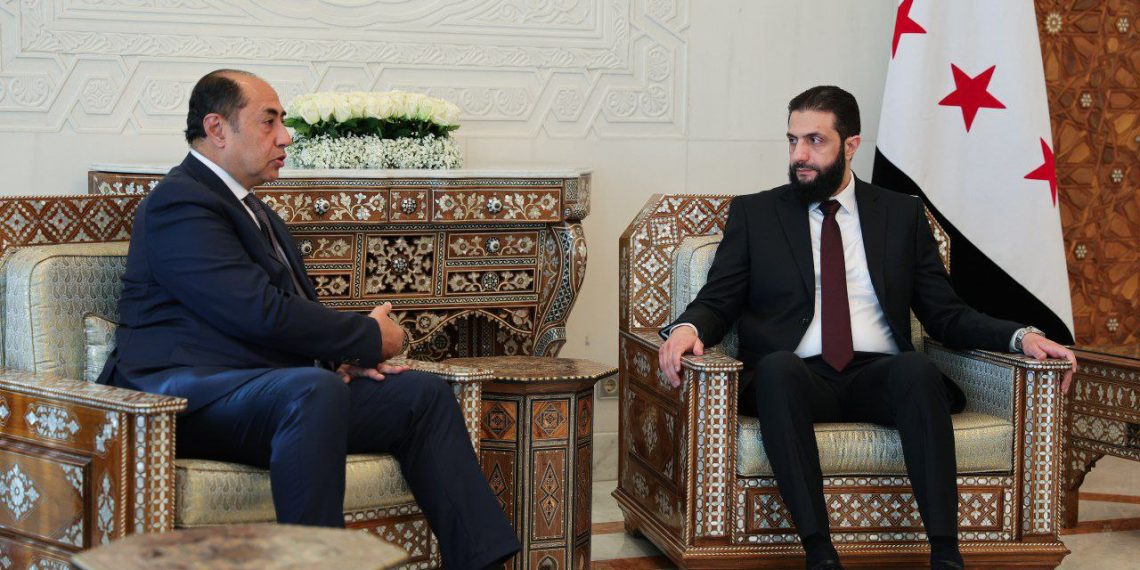The Assistant Secretary-General of the Arab League, Hossam Zaki, stated on Thursday that he discussed the issue of foreign individuals holding leadership positions in the Syrian military with Ahmad al-Sharaa, the head of the new Syrian administration.
Zaki conveyed concerns raised by several Arab states regarding matters related to Syria, which he described as a source of significant apprehension for the League’s member states.
In a phone interview with Al-Jazeera, Zaki noted that Sharaa provided positive and constructive responses during their discussions. He assured that he would relay these responses to the Arab League member states.
Zaki also revealed that Arab foreign ministers are set to meet at the end of February, providing an opportunity to further discuss Syria’s status within the Arab League.
Earlier on Saturday, a delegation from the Arab League, led by Zaki, arrived in Damascus, where they met with Sharaa and Syrian Foreign Minister Asaad Al-Shibani.
Following the meeting, Shibani and Zaki held a joint press conference, addressing Syria’s aspirations, its relationship with the Arab world, and potential steps to support the new Syrian administration.
Concerns Over Foreign Military Appointments
On January 10, Reuters reported that American, French, and German envoys had warned the new Syrian administration about the appointment of foreign fighters to senior military positions. These appointments, they argued, raise significant security concerns and undermine Syria’s efforts to establish international relationships.
According to an American official quoted by Reuters, the warning was delivered during a meeting between U.S. envoy Daniel Rubenstein and Sharaa at the presidential palace in Damascus.
In December, Reuters revealed that the Military Operations Administration had made approximately 50 appointments, including at least six foreign fighters. Among them were individuals from China, Central Asia, Turkey, Egypt, and Jordan.
Notable appointees included Jordanian national Abdul Rahman Hussein al-Khatib, who was promoted to the rank of brigadier, and Uyghur fighter Abdulaziz Dawood Khudabardi, also known as Zahid. Additionally, Egyptian national Alaa Mohamed Abdelbaki, who fled Egypt in 2013 and was sentenced in absentia to life imprisonment on terrorism charges in 2016, was given a senior position.
The controversy surrounding these appointments highlights ongoing challenges in the new administration’s efforts to balance internal stability with international legitimacy.
This article was translated and edited by The Syrian Observer. The Syrian Observer has not verified the content of this story. Responsibility for the information and views set out in this article lies entirely with the author.


